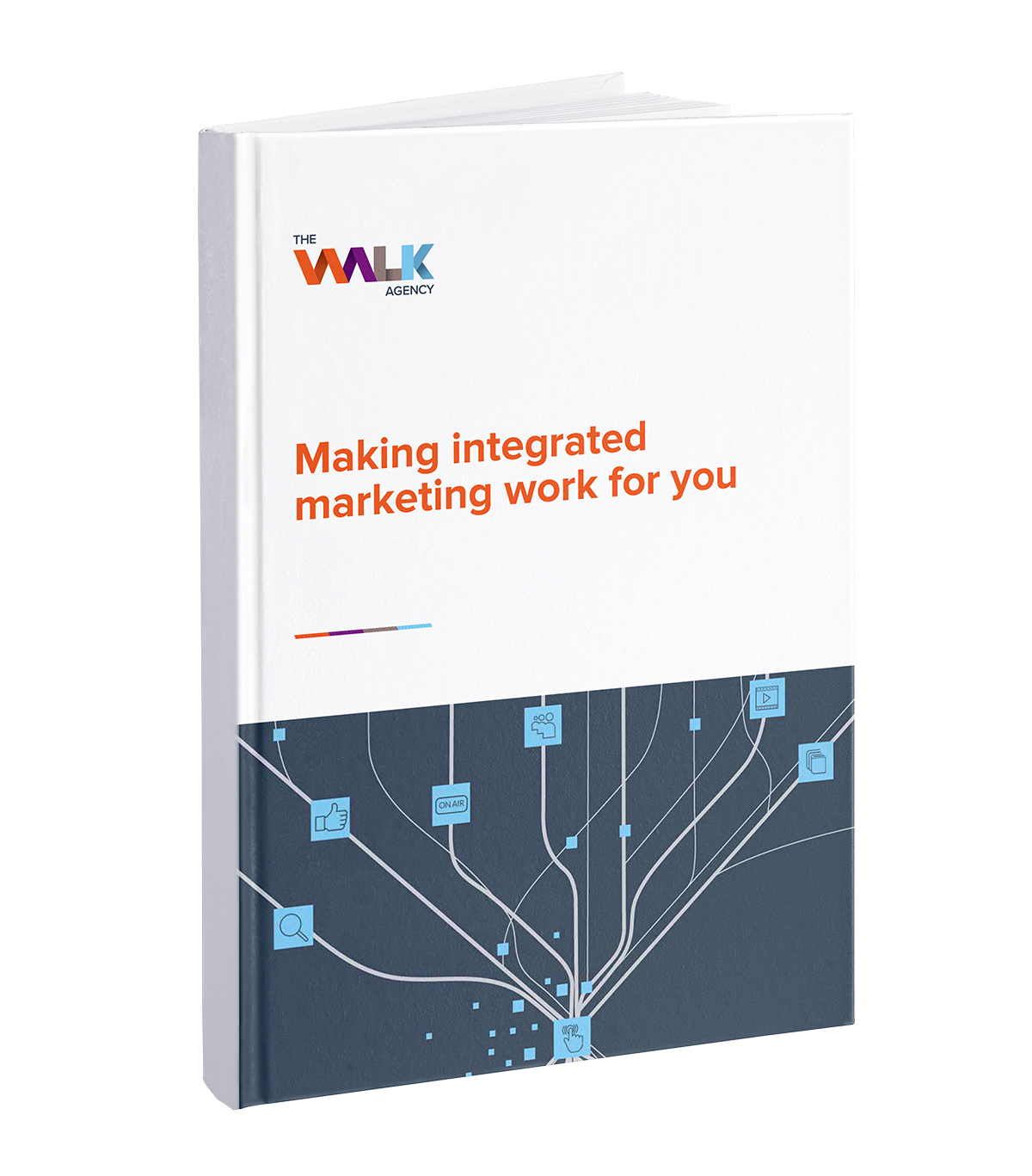From 2011 to 2019, the number of digital marketing tools on the market has increased tenfold. Finding the ones best suited to run enterprise marketing campaigns is a bit like finding a needle in a haystack.
To help you speed up your research process, we’ve curated a concise list of the most powerful enterprise marketing platforms available in 2019. Our review covers our experience with the strengths of each platform within the categories of Insights, Strategy and Content. Where the platform doesn’t cover a specific area, e.g. Insights, we’ve left this out.
Ready? Let’s do this!
1. Oracle Marketing Cloud
Oracle Marketing Cloud is an end-to-end marketing platform that enables Enterprise Marketers to run integrated marketing campaigns over both online and offline channels. It’s a fantastic option for enterprise marketers to have a hub for their omnichannel campaigns.
Insights
One of our favourite features of Oracle Marketing Cloud is the ability to customise reporting. When creating a report, you can control the visibility of each element depending on the viewer’s role. Not everyone needs to see every single small detail about the campaign, it’s a courteous way to send reports throughout your organisation. For example, you can make the ROI per marketing campaign visible only to the marketing managers and the CMO. Another plus is that the platform offers cross-channel analytics, helping you easily pinpoint the best performing campaigns and assets.
Strategy
A particular strength of Oracle Marketing Cloud is the ability to create personas and assign content to each persona at each stage of the buying journey. When designing your campaigns, you can use a drag-and-drop editor that makes it a lot quicker to adjust your strategy and plan execution. Then, you have the ability to create follow-ups based on customer behaviour.
Content
In terms of content production, Content Workflows are one of the features that we must mention in this review. They allow you to outline the stages of your content production process, assign team members and track progress per asset. Any enterprise marketer who’s tried to manage content development over email knows that a workflow management tool can be a huge time saver!
2. Kenshoo
Kenshoo is a digital marketing and advertising platform that integrates dozens of digital marketing solutions to help you keep track of the customer journey across channels and devices. With a healthy dose of gut, machine learning algorithms and cutting-edge AI, we found it to be a great platform to learn and predict consumer journeys.
Insights
Kenshoo integrates with the most popular analytics solutions out there to deliver cross-channel insights. What impressed us was the platform’s ability to track user engagement across channels and devices. Kenshoo has its own database (The Drawbridge Connected Consumer Grap™) which, according to this brochure, can match a user to their devices with 90% accuracy.
Content
Kenshoo helps speed up content creation with campaign templates and automatic creation of geo-targeted advertising campaigns. Another noteworthy feature we found was the ability to follow a potential customer all the way from search to social media and automatically retarget them.
3. Marketo
Marketo is an all-in-one marketing automation platform that uses AI and machine learning to help you personalise your content. A seriously powerful tool when used at the best of its ability to improve customer lifecycles.
Insights
Marketo’s analytics and attribution tools are focused on proving ROI. We found that the platform enabled us to monitor engagement per channel, medium or campaign and download reports in a convenient PowerPoint format. Easily shareable reports? Check.
Strategy
With Marketo, we could plan marketing activities across channels and market segments. Much like Oracle Marketing Cloud, this platform has a visual editor that lets you assign content based on a prospect’s persona and stage of awareness.
Content
Marketo has the ability to dynamically serve content, depending on the prospect’s behavior and persona. The platform uses AI and machine learning to analyse the performance of existing assets, discover behavioral patterns in customer databases and decide which content is most appropriate for a specific website visitor. We found that this range of helpful analytics paired with a healthy dose of gut is a great way ahead.
4. Google Marketing Platform
Google Marketing Platform integrates all of Google’s marketing tools to give you a bird’s eye view of your marketing activities. For us, it represents the gold standard for encapsulating all of your digital activities. It contains the foundation and building blocks for success.
Insights
The ability to pull data from Google’s various online marketing solutions is certainly crucial to enterprise marketers. With Google Marketing Platform, you can see what parts of your marketing are working, set goals and make informed decisions, e.g. you can correlate your website analytics data to your advertising data. There is also a built-in AI tool that brings up the most important statistics to the surface, helping you take appropriate action.
Strategy
Google Marketing Platform can certainly be useful when you want to gain a more complete view of the customer journey and build a cross-channel strategy. We use it to import third-party data from other channels, such as CRM systems, email tools and offline sources to understand what’s working and plan future marketing efforts with greater precision, e.g. you can compare Facebook Ads vs. Google Ads to decide which channel is more effective in reaching your target audience.
Content
If you’ve ever dreamed of a single dashboard to manage all of Google’s advertising solutions, this is it. Google Marketing Platform allows you to run surveys and publish search, display and video ads, as well as run A/B tests through variations of your ads and website content.
5. Salesforce Marketing Cloud
Salesforce Marketing Cloud comes with a complete set of cross-channel marketing tools, AI and the ability to pull data from any source. An incredibly robust cloud packed to the brim with useful tools, integrations and features. You can tell this tool was designed with enterprise marketers in mind.
Insights
With a huge library of third-party plugins and an API, Salesforce Marketing Cloud lets you integrate data from all types of third-party marketing tools such as social, search, email, web analytics, and many others. This is definitely a powerful feature because it allows you to consolidate all of your data in one place. Another highlight in Marketing Cloud’s feature set is AI-powered analytics which, according to the company’s website, can help you improve ROI.
Strategy
The Journey Builder is very user-friendly and makes it easy to plan your integrated marketing campaigns. You can create customer journeys involving various marketing channels and set goals to define when a journey should end. An especially valuable feature in this regard is the ability to trigger specific actions based on real-time events such as purchases or mobile app downloads.
Content
Salesforce Marketing Cloud comes with the tools to create and deliver content across a number of channels, including mobile, social media and email. Much like other solutions on this list, it can also serve content dynamically, depending on the prospect’s behaviour.
What caught our attention about Salesforce Marketing Cloud was the asset management capability. There is a tool called Content Builder that enables you to store and reuse various assets that you’ve already created such as images, blocks, templates and emails. This functionality can save you and your team a lot of time when it comes to content creation.
6. Adobe Experience Cloud
Adobe Experience Cloud is a powerful integrated marketing solution that employs AI and machine learning. Amongst its whole suite of marketing tools, the standout for us was their feature rich email marketing experience to create customer first strategies.
Insights
Besides real-time cross-channel analytics, the Adobe Experience Cloud suite also gives you predictive analytics powered by AI. Thanks to this technology, the platform can, for example, estimate how likely a customer is to convert or churn. You can also pull customer data such as location, credit card score, online browsing behaviour, etc., and use it to personalise marketing messages across channels.
Strategy
The campaign builder has a convenient drag-and-drop interface and allows you to run integrated marketing campaigns across channels. What is impressive about it, however, is that it gathers data from various sources creates dynamic customer profiles for you. Dynamic customer profiles paired with the artificial intelligence algorithm that adjusts your strategy on the fly promise to help you achieve a higher level of personalisation.
Content
Adobe Experience Cloud offers a new approach to content marketing called “fluid experiences”. The goal is to eliminate the need to create content for each device or platform and, instead, assemble content from stand-alone pieces of copy and media. The platform connects these pieces on the fly, aiming to create the best possible experience for each prospect.
The final word…
In 2019, enterprise marketers finally have access to powerful marketing tools that can help drive integrated marketing campaigns across channels. The level of personalisation has really stepped up in recent years. These tools are helping to deliver truly personalised experiences that deliver on the promise of modern marketing.
How The Walk Can Help
It’s true that, with the right tools, you can get a much higher return per marketing dollar. It’s also true that tools are of little use if they are not put to use as part of a smart and accountable strategy. That’s why, at the Walk, we start by analyzing insights, continue to develop a strategy and, finally, prepare the necessary content, which then delivers the results that will deliver the insights for the next phase. The marketing tools we use only help streamline our tried-and-tested integrated marketing process. Learn more about our process and services here.




